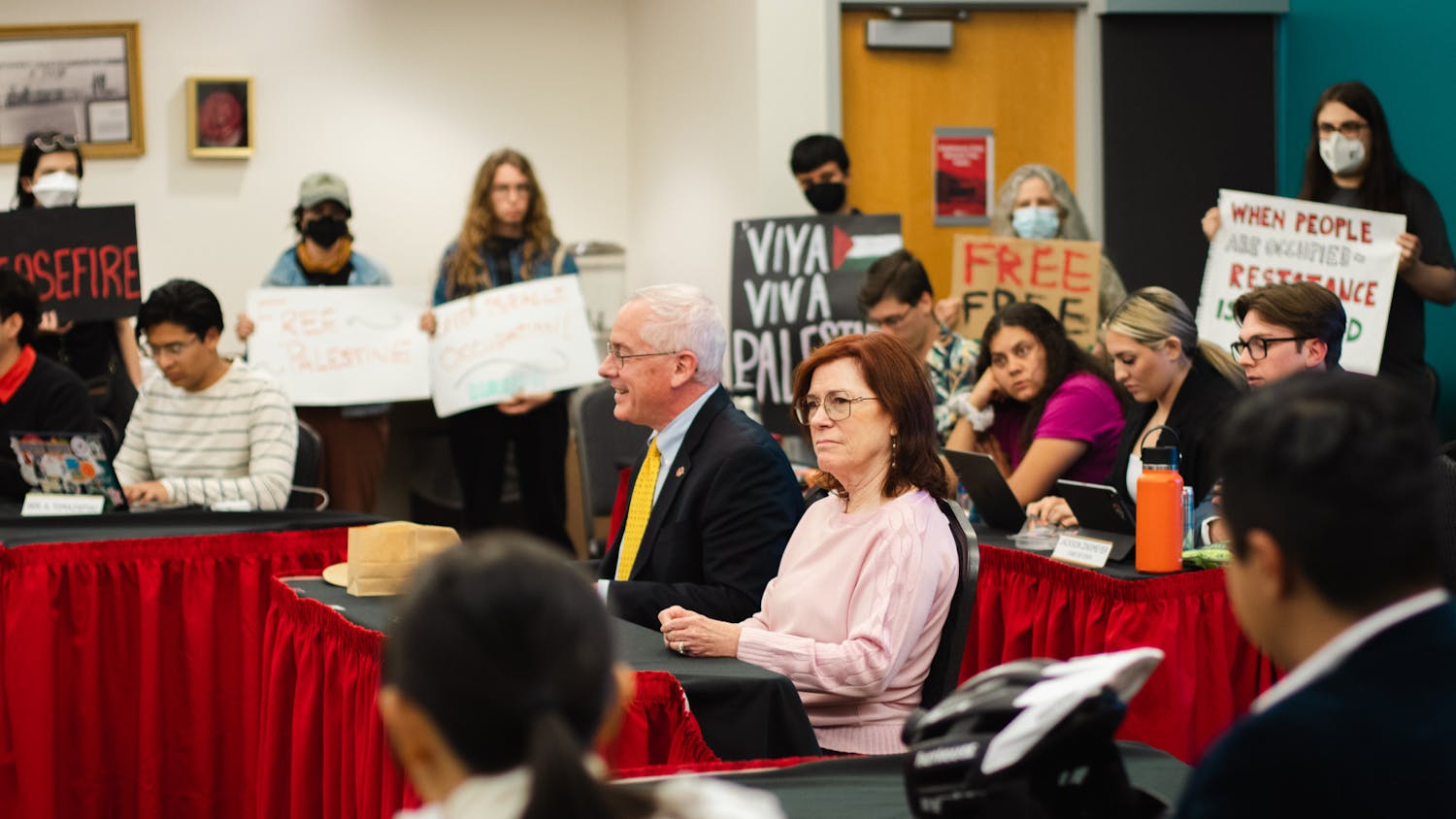opinion@dailylobo.com
Many of us learn the hard way that the best cure for a broken heart is to simply bid the outside world adieu and never leave the house again. Who needs real relationships when you can curl up with eight seasons of “How I Met Your Mother” on Netflix?
While this logic is undoubtedly flawless, keep in mind this Valentine’s Day that a broken heart may hurt worse than you think.
As society becomes increasingly more individualized, researchers recognize that people are lonelier than ever. In America, the average person reports having two close friends, which is one whole less friend than in 1985. A UK study found that the number of adults who claim to have no personal confidant whatsoever jumped 300% in the last two decades.
Duke University Professor Lynn Smith-Lovin stresses the urgency in studying our movement towards social isolation, claiming that “this change indicates something that’s not good for our society.”
We know that loneliness makes us sad, but scientists have begun to investigate whether lack of socialization carries long-term effects on our well-being. It turns out that loneliness can be serious: numerous studies have identified a relationship between frequency of lonely feelings and measures of poor cardiovascular health, such as high BMI, blood pressure and cholesterol. A meta-analysis of 148 studies on loneliness and mortality calculated that being well socialized protects against mortality more than exercising or not smoking.
How can feelings actually impact whether or not we have good health? Scientists are not yet sure, but it appears that loneliness may alter important regulatory systems in the body.
In a study of young adults, those who felt alone displayed elevated levels of total peripheral resistance, which is a major determining factor of systolic blood pressure until late adulthood. Some researchers hypothesize that feelings of loneliness in adolescence act through TPR to cause coronary problems later in life.
Genetic research on lonely individuals also points to increased activity of the NF-xB transcription factor, which in turn over-activates genes involved with inflammation. Inflammation is important to the development of many major illnesses including Alzheimer’s disease.
If social isolation indeed puts us at greater risk of illness, we must come together to understand and treat its root cause. But the question remains: In a globalized and high-tech world where even overseas communication is instantaneous, why do we feel more alone?
The jury’s still out on what’s causing us to socially isolate ourselves. Some scientists speculate that increased rates of single-person living — increased from 17 to 28% over the last forty years — and longer working hours may in part be to blame.
If we want to prevent ill health effects from isolation, we must modify the way we interact with people around us. Early research suggested that improving the meaningfulness of interpersonal relationships was the best way to prevent negative outcomes.
Get content from The Daily Lobo delivered to your inbox
However, these days, scientists are stressing the important distinction between being socially isolated and actually feeling lonely.
“[W]e all know people who might seem socially isolated but don’t experience loneliness because they are comfortable being on their own,” says Andrew Steptoe, a professor at University College London. Steptoe and his team were interested in finding out if such introverted individuals have fewer health risks than people suffering from loneliness.
Last year, they revealed some surprising results from a seven-year study published in the Proceedings of the National Academy of Sciences. As expected, social isolation and loneliness both independently predicted higher mortality rates in older adults.
However, the relationship between social isolation and mortality stood true regardless of an individual’s health, whereas the relationship between mortality and feeling lonely was mostly mediated by poor health.
Therefore, Steptoe claims that treating social isolation rather than loneliness may be most effective in prolonging a healthy life. Further research is needed to validate these findings, but they provide an intriguing path for future studies.
Understanding the effects of social isolation and loneliness on health outcomes is becoming increasingly important as our society moves towards heightened independence. Just as health care professionals advocate for smoking cessation, healthy eating and exercise, they should consider promoting social participation and fulfillment.
What is especially concerning is that loneliness is a silent danger that everyone is susceptible to. So if you are having a hard time finding a soul mate this Valentine’s Day, don’t give up.
Do yourself a favor and make some new acquaintances — your health might depend on it.





